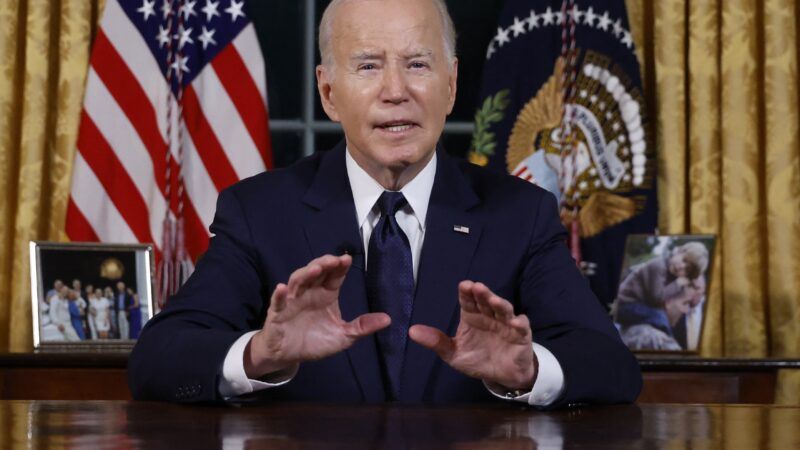Biden Expands Pardons for Low-Level Federal Marijuana Offenders
The pardons freed no prisoners, but the White House says they will ease the burden of a criminal record.

President Joe Biden expanded a categorical pardon today for low-level marijuana offenders convicted on federal lands and in the District of Columbia, a move the White House says will ease the burden of a criminal record for thousands of people.
"Criminal records for marijuana use and possession have imposed needless barriers to employment, housing, and educational opportunities," Biden said in a White House press release. "Too many lives have been upended because of our failed approach to marijuana. It's time that we right these wrongs."
In October of last year, the White House announced categorical pardons for those convicted of simple possession of marijuana on federal lands. Today's announcement expands the eligible offenses.
Biden also commuted the sentences of 11 nonviolent drug offenders serving sentences that were much longer than they would have been if the prisoners had been sentenced today. They were convicted of cocaine and methamphetamine offenses.
On the campaign trail, Biden promised to fix some of the federal drug war's most draconian policies—many of which he was partly responsible for—but his administration was slow to act on those promises, leading to criticism from criminal justice advocacy groups.
As Reason's Jacob Sullum wrote last year, Biden's marijuana pardons were estimated to potentially benefit roughly 10,000 people, but they didn't free a single one of the nearly 3,000 people serving long federal sentences for marijuana offenses. They also didn't apply to noncitizens.
In his statement today, Biden urged state governors to use their clemency powers too. "Just as no one should be in a federal prison solely due to the use or possession of marijuana, no one should be in a local jail or state prison for that reason, either," Biden said.
But as Sullum wrote, the logic of Biden's position on marijuana—that possessing and using it should not be a crime, but selling it should remain illegal—makes no sense:
The moral logic of Biden's distinction between simple possession and other marijuana offenses is hard to follow. He says using marijuana should not be treated as a crime. If so, how can helping people use marijuana justify sending anyone to prison? And why should people convicted of assisting cannabis consumption be saddled with felony records for the rest of their lives?
Still, the pardons reflect the continuing collapse of public support for prohibiting marijuana. Following the passage of ballot referendums in Ohio this November, marijuana is legal in 24 states. A Gallup poll last month reported that 70 percent of Americans favored legalizing marijuana—an all-time high.


Show Comments (81)